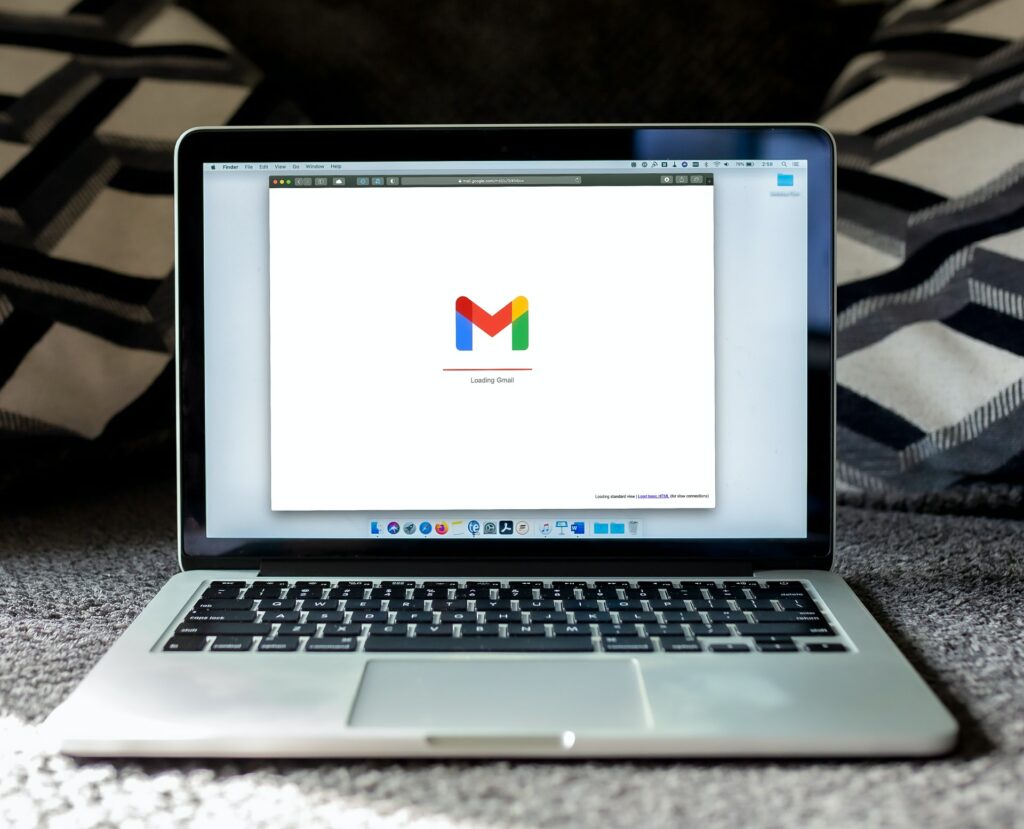Learn how to use technology solutions to become more productive and profitable.
From appliances to software, technology is a small business owner’s best friend. It helps you increase efficiency, improves customer relations, and saves time and money. Here are 21 areas where technology solutions will help your small business grow.
21 Essential Low-Cost Technology Solutions for Small Businesses
1. Online Appointment Scheduling
Seamlessly arrange meetings with new prospects, schedule appointments with clients, or plan personal events with friends using online appointment schedules. Save time by allowing other people to select slots from your calendar. See at a glance what events and meetings you have coming up that day or week. In addition, it allows you to create a system that allows access to other people which successfully eliminates the meeting management task off your list.
2. Help Desk Applications
Customer service is crucial for all business owners, especially if you’re a small business owner. One of the best ways to incorporate customer service into your organization or website is through a customer service/help desk application. Such tools improve your ability to be responsive to your customers’ needs and make the process of managing relationships easier.
3. Screenshot Tools
We all generally take a lot of screenshots on our mobiles. But, a lot of small business owners don’t know how to take screenshots on their computers. Screenshots are extremely useful. You might have to submit a support request to a vendor or just use it to trigger your memory in the future. Therefore, using screenshot tools becomes vital.
4. Online File Conversion
Files come in all types and sizes. However, if you’re working on a different device or don’t have the software required to view/edit the file, then things can get delayed. An online file conversion software will make the process easy and quick by quickly converting the files. There are a lot of free software and services that convert graphics, audio/video files, and documents into new file formats in a few seconds.
5. Screencasting Tools
These tools allow you to show your screen activity with voice-over narration to others. There are a lot of screencasting tools available to business owners with different levels of functionality and complexity. Screencasts are used for a number of reasons such as conducting lessons, demonstrations, and tutorials.
6. Remote Desktop Access Applications
Small business owners can enjoy increased mobility with the help of such applications. Easily access your primary computer and all the data on it even when you’re out of the office. In addition, you can edit/modify it from your mobile or iPad. This gives you an edge when it comes to running and managing your business. Some of the best remote desktop applications are LogMeIn and GoToMyPC.
7. Invoicing Services

There’s a plethora of invoicing services you can choose from. Select a service depending on the size and type of industry you’re in. you can opt for a free invoicing service or an extensive accounting suite to cater to your needs. You can also use a streamlined online invoicing service that allows you to manage your billing process faster and proficiently.
8. Mobile Sites and Payment Options
Did you know that smartphones are credited with over 50% of online traffic? It means more than half of your customers prefer completing the transaction using devices other than a laptop or computer. It’s wise to consider launching a mobile app as it gives a competitive edge over your rivals. Depending on your industry, you can also offer features like enhanced customer support, video chat, and the ability to quickly purchase products. Don’t forget to install payment terminals that work on mobiles. Add advanced encryption to make the process secure for your customers.
9. Time Tracking Software
Time tracking software such as ActivTrak and TimeDoctor allows you to keep a track of your employees’ performance. Time tracking tools are known to increase efficiency and boost performance. Using such tools is an excellent way to ensure your projects are completed on time and no time is wasted. You can also use a time tracking tool for yourself to boost your own productivity and focus on what’s really important. There are a lot of options available such as online tools and desktop applications for you to choose from. The best part, though? Most of these tools can be integrated with your bookkeeping and project management software!
10. Teleconference Services
As a small business owner, a lot of your work depends on virtual elements. For instance, you may be conducting calls with your team or clients at different places. Teleconference services enable you to conduct teleconferences with several parties, at any time without needing any bridge line or special equipment. You can also use web conferencing tools to connect with clients and team members across the globe.
11. Landline Alternatives

Small business owners are no longer glued to their desks or work from their offices. Therefore, they don’t use landlines to stay in the loop. One of the best ways you can run your business without depending on landlines is to opt for virtual phone lines, VoIP, and cell phones.
12. Open-Source Software
They provide you with alternatives to using typical commercial applications to manage your daily operations. Open-source software is popular because it doesn’t require any significant financial investment. In addition, they’re flexible and easy to use. Some of the most popular open-source software and tools are office software suite, Google suite, and OpenOffice.org.
13. Online Business Training
For small business owners, the desire to expand, gain experience and knowledge is invaluable. You can travel the world and participate in education events and live training. However, since most small business owners are restricted by time and budget, it’s best to opt for self-paced training and programs. They help you expand your knowledge and connect with industry experts right from the comfort of your home! Most of the exceptional online business training programs and resources are available online. Research and find the right course that will help you hone your skills.
14. Chatbots
They’re more effective than humans, can deal with customers in a better manner and they’re more intelligent. In addition to that, they’re quite cheap. As a small business owner, you can’t afford to lose any customers. If, for instance, a customer is unhappy with your product and can’t reach out to your customer support (because it’s 2 a.m.), they’re going to be angry. To avoid aggravating your customers, you can use a chatbot on your website. This helps the customer get the right kind of help at the time most convenient to them. This is one of the most effective technology solutions.
15. HR Software

Employees are a small business owner’s biggest asset. Therefore, it’s important to ensure that your human resource management is excellent. It not only boosts employee morale but also boosts their productivity. Functions like attendance management and employee development activities can be taken care of by adopting HR software.
16. Customer Relationship Management Software
Handling customers drains a massive chunk of your resources. Therefore, you must look for an effective and innovative way to handle customers on a budget. Use a CRM that’s tailored to your needs and can deliver a cost-effective, tangible, and precise solution.
17. Cloud Computing
It has revolutionized the way we do business. By embracing cloud computing, small business owners can become agile and scalable. In addition, it’s cost-effective so you can enjoy increased efficiency without breaking the bank.
18. Analytical Tools and Inventory Management
Analytical tools provide insights into which products are performing week and which need more attention. Improper inventory management leads to over orders. In addition, it causes issues with the cash flow. Therefore, it’s important to have a dedicated system to track which products are to be dispatched, how much stock is left, and notify you when the inventory starts running low. Applications such as TradeGecko and Cin7 are specifically designed to help small businesses keep a track of their inventory.
19. Artificial Intelligence
AI is involved in almost all industries. In fact, you may not be aware of it! For a lot of small business owners, AI is used to track customer behavior and provides insights on trends. It’s common to see it incorporated on e-commerce platforms. Refined data allows you to optimize your marketing campaigns. AI helps predict behavior patterns by offering a thorough analysis of purchases.
20. Email Marketing

Investing in email marketing will help you maximize profits. The key is to create emails that are interesting, relatable, and provide value to your customers. Use a compelling subject line and beautiful images to delight your customers. Your emails should focus on educating your customers and not on blatantly promoting your products. As a small business owner, you can opt for free email marketing tools such as MailChimp and Hubspot which are effective technology solutions.
21. Online Security
You’ll be surprised to know that more than 77% of cybercrimes are targeted at small or midsize enterprises. Yet, research has shown that 42% of these businesses don’t perceive cybercrime as a risk. Therefore, in today’s day and age, it’s important to secure your growing enterprise against cybercrimes. Opt for software that detects attacks in real-time, has a low running and maintenance cost, and has the ability to protect you from attacks that other security solutions may miss.
In Conclusion
As you have seen, there are a lot of low-cost technology solutions for small businesses. While some help you deal with clients more efficiently, others help you manage your team and reduce costs. Choose technology solutions depending on your budget and industry.

Featured Image Credits: Unsplash
About the Author

Shristi Patni
Content Writer
Shristi is a content writer and owner of F and B Recipes and Snazzy Women. When not writing, she can be found reading or trying new recipes.






